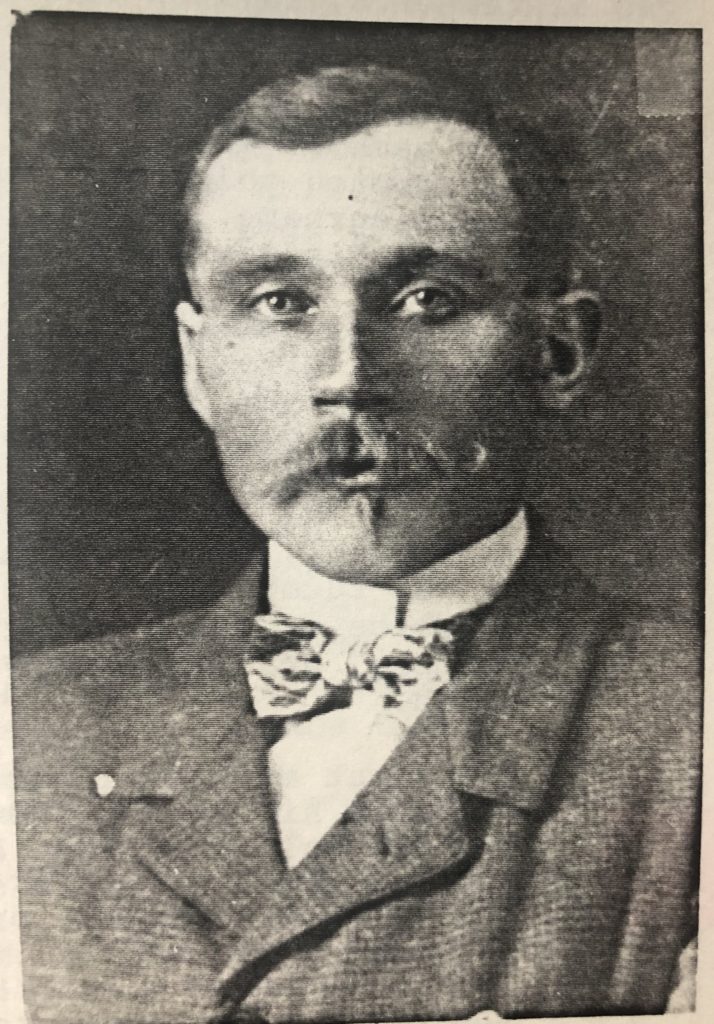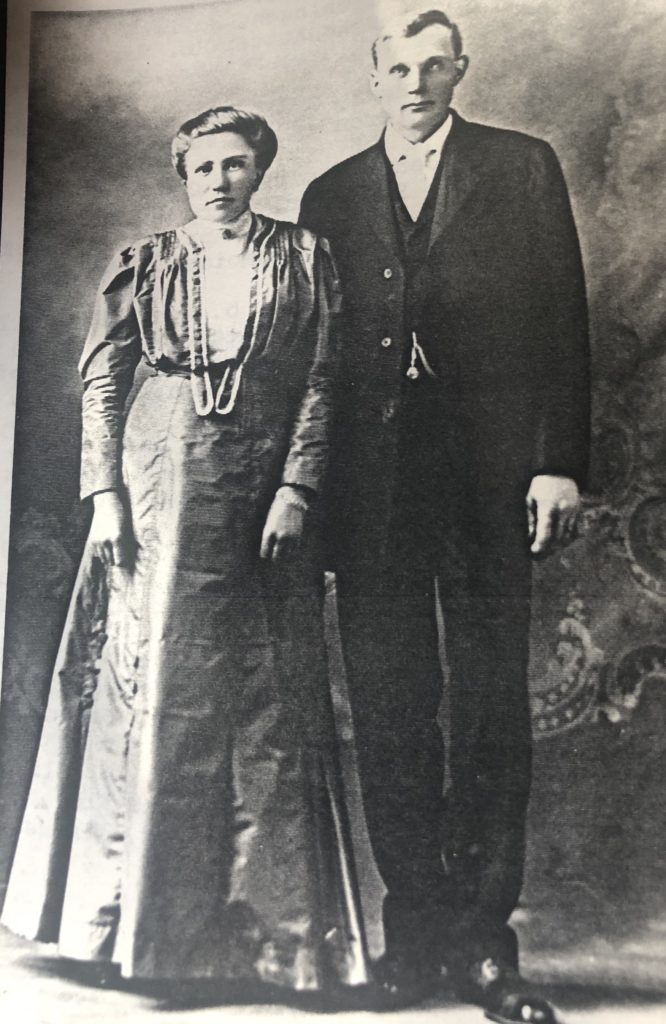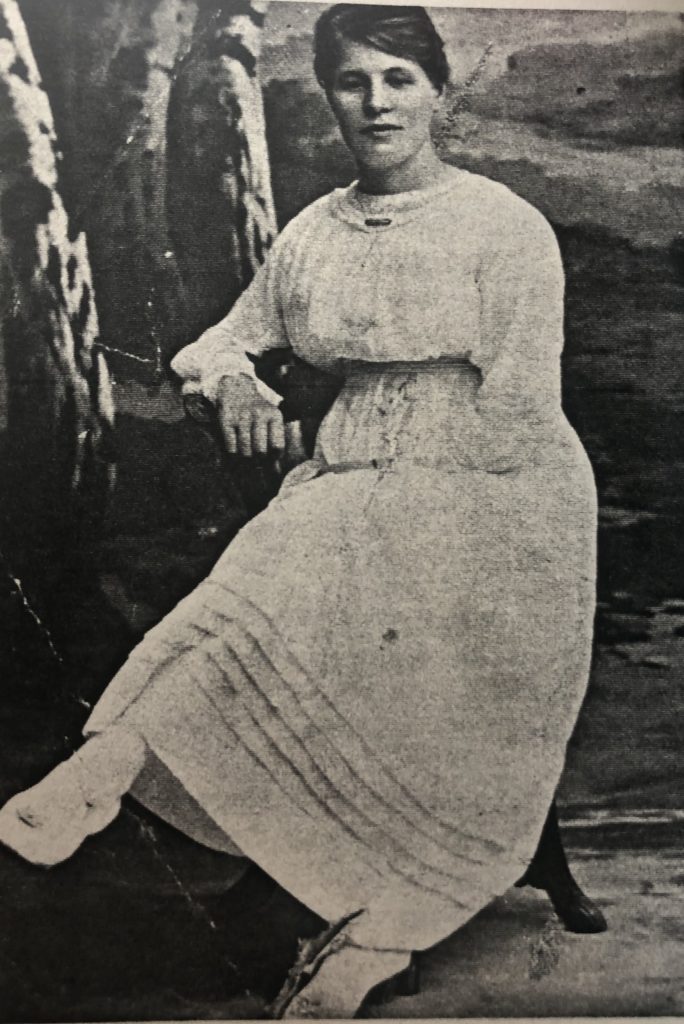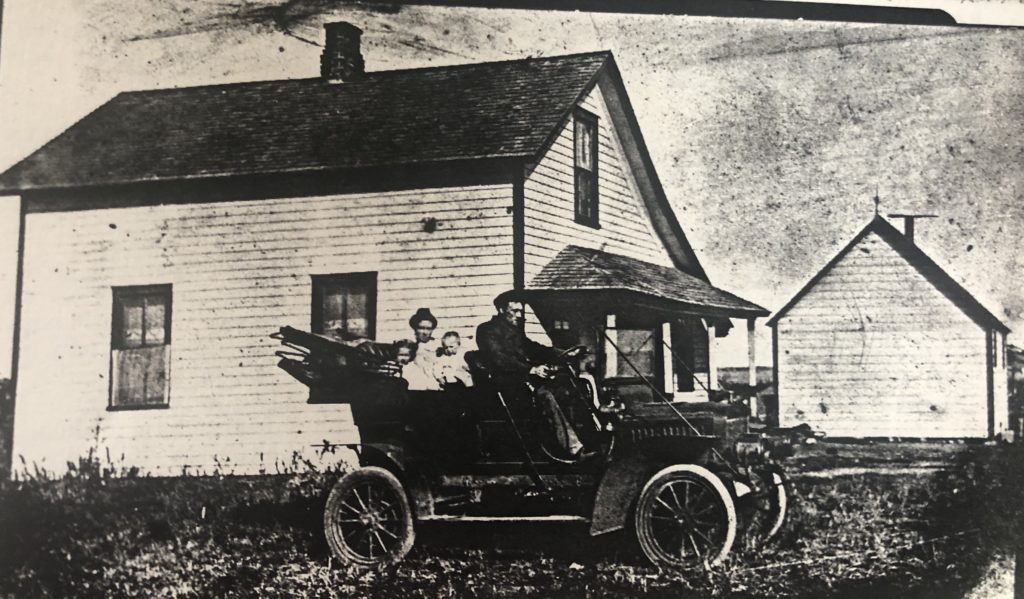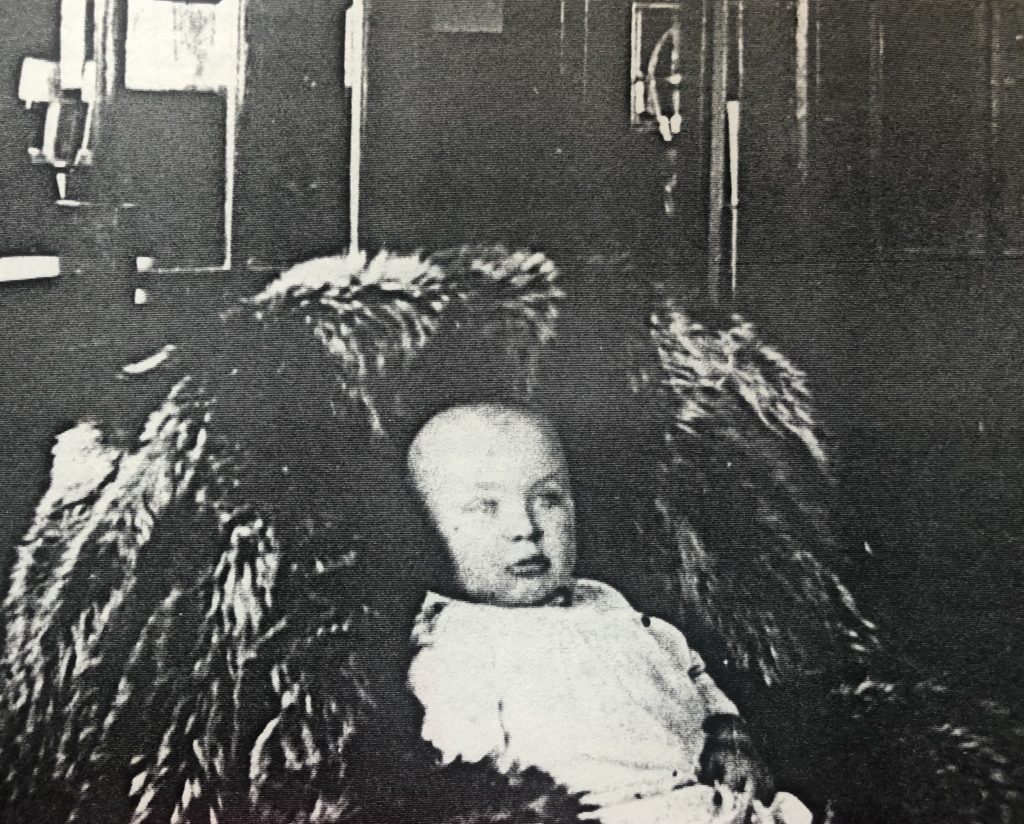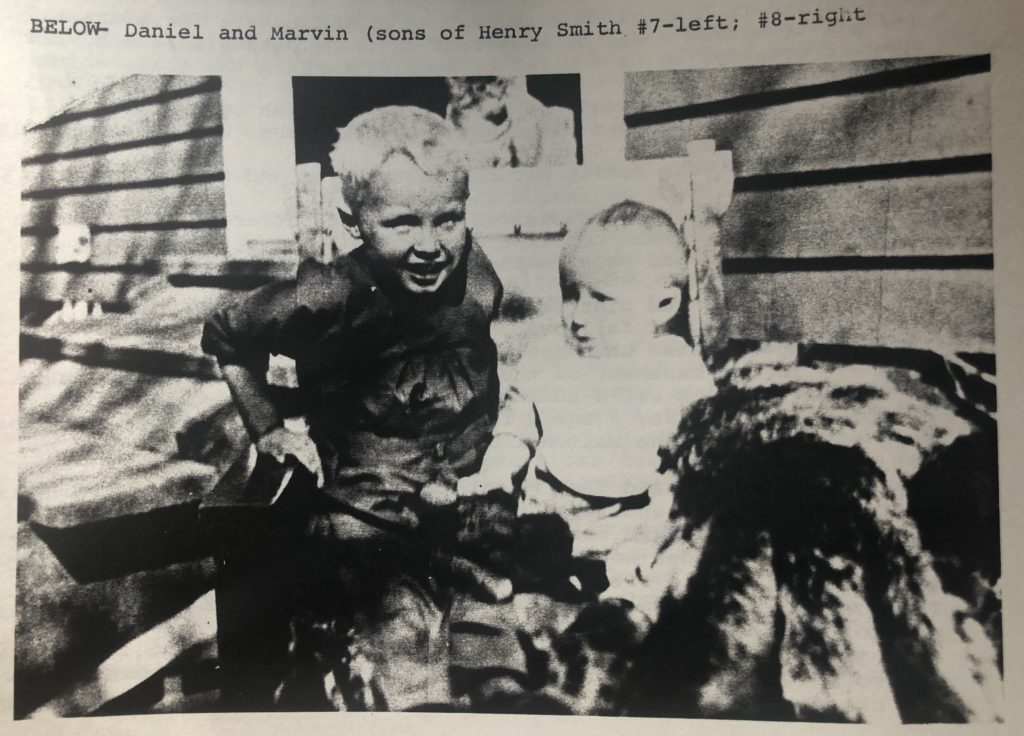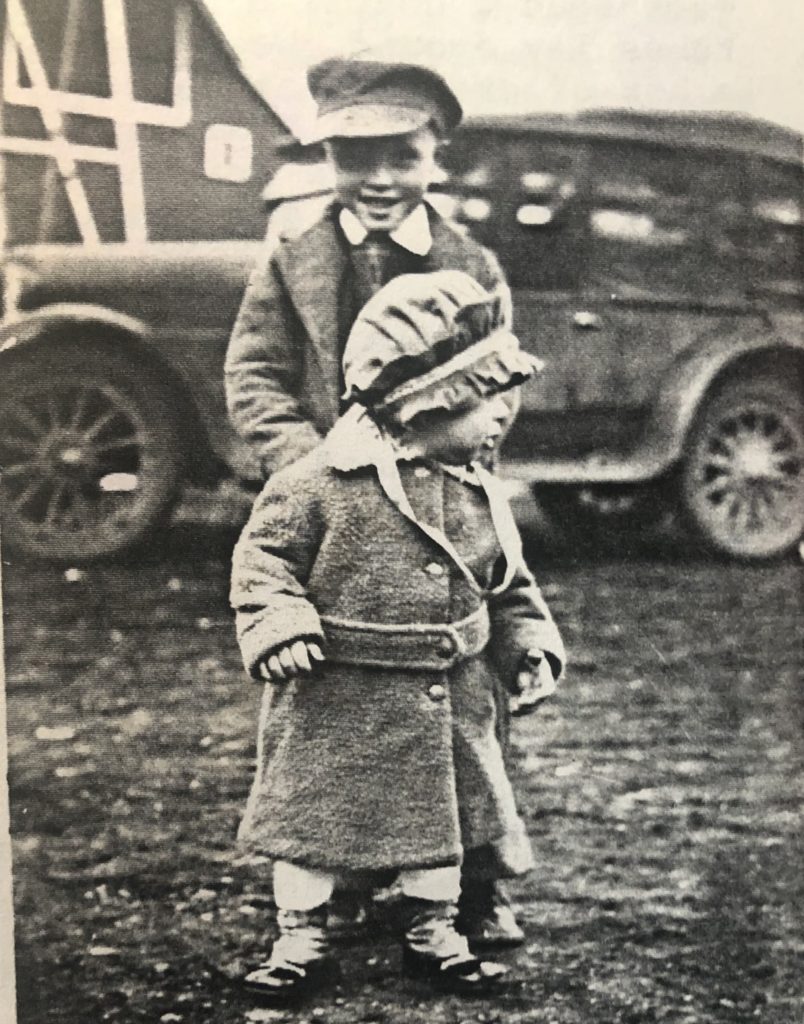The Smith Family
The father, Henry, had six children with his first wife, Katie, and four children with his second wife, Susie. Daniel was the first child of Henry’s second wife. Henry, Katie, and Susie were all immigrants from the Netherlands and active members of the Christian Reformed Church.
The farm the Smith family lived on was primitive. The bedrooms were unheated. The "pea pot" would freeze over at night. There was no plumbing in the house. They had a washing machine with a 32-volt motor and used a generator to run it.When a relative of Susie's visited from Holland she was shocked there was no toilet.
Henry (Pa) apparently added an "H" to the “Smit” name when he came to the United States.
Father: Henry (Pa)
His actual name was not Henry but Hendrikus. His personal friends called him "Rieks."
Henry Smith, along with his first and second wife, were from the Netherlands. It appears that Henry was quite well-to-do in the Netherlands, based on the size of the house and the fact that they had several farm laborers.
Henry was a well-to-do farmer until 1929 when he lost his money, reported to be $35,000, when the banks collapsed. During the depression of the 1930’s when crops weren't growing, Henry had to find money to pay the mortgage interest every year.
First wife: Trientja (Kate) Kadyk
After World War I, in about 1919, Henry's first wife, Katie, died after the birth of Ted, the youngest of her six children. She died of an infection that occurred shortly after Ted's birth.
Children:
Jennie - born October 14,1909
The oldest daughter, Jennie, had a nickname of “Yantje.” Whenever the Dutch add "tje" to a name it's a diminutive of the name. Jennie graduated from the eighth grade. She started home economics and music at South Dakota State College in Brookings, South Dakota when she was about age 17.
Henry - born April 19, 1911
The second child Henry, and his nickname was "boy" but in the Dutch pronunciation it sounded more like "buoy.” He was also called "Hank". Hank loved to work with horses. He left home before the '30s. While he was home every fall he went to Iowa to pick corn by hand.
John Henry - born November 26, 1912 -
The third child was John and he was called "Jan." John left home when he was about age sixteen, working on the farm for Wessel Bowman. John was known as the tough guy in the family.
Jacob Maynard (Jake) - born February 8, 1914
The fourth child was Jacob. One of the maids called him "Bob" or "Bobby" pronounced "Bop." Read this story about his school experiences.
Albert Eme (Al) - born April 19, 1915
The fifth child was Albert and they called him "Aap" pronounced, "Op." Jacob and Albert two boys were always close. We called them "Bop and Aap." When they were called for supper or to do a chore, it sounded like one word: "Bop'n'Aap."
Theodore (Ted) - born April 15, 1919
The sixth child was Theodore, called "Teddy,". Henry’s wife Trientja (Kate) died giving birth to Teddy. Pa called him, ''Tetty myne younge" and later into Ted's early teens, it was ''Tet myj junge." In English this is ''Teddy, my little boy" or ''Ted, my boy.”
Second wife: Swaantje (Susie) Zeven
Children:
Daniel Herman (Dan) - born March 5, 1922
The seventh child was Daniel. He was the first child of Henry’s second wife, Swaantje (Susie). He was called mostly "Danny" or "Dointje" which is hard to spell but it has the "tje" on the end.
Marvin Henry - born January 22, 1925
The eighth child was Marvin who was nicknamed, "Boektje" which means "little tummy." He had a little tummy when he was a baby and Henry used to call him “my little Boektje" meaning “my little tummy boy.” As he got older we knew him as "Boek" which was not very complementary anymore and he hated that. We eventually stopped calling him Boek and he was just Marvin.
Maynard Johannas (Mike) - born July 22, 1926
The ninth child was Maynard who was called, "Meintje." Remembering Maynard
Edward Sylvanus - born May 15, 1930
The tenth and last child, Edward, was called just plain "Eddie."
Uncle Jake Kadyk: Katie's Brother
While not a "Smith", Uncle Jake plays an important part in the story. Uncle Jake was a bachelor, and he was very attached to his sister and to his niece and nephews. When Henry’s first wife died, the property was divided between Uncle Jake and Pa. Uncle Jake received a smaller portion, but without a mortgage or a house. Henry received the house, but also the mortgage for $6,000.
Uncle Jake was a mechanical genius and he lived in a shanty on his property.
